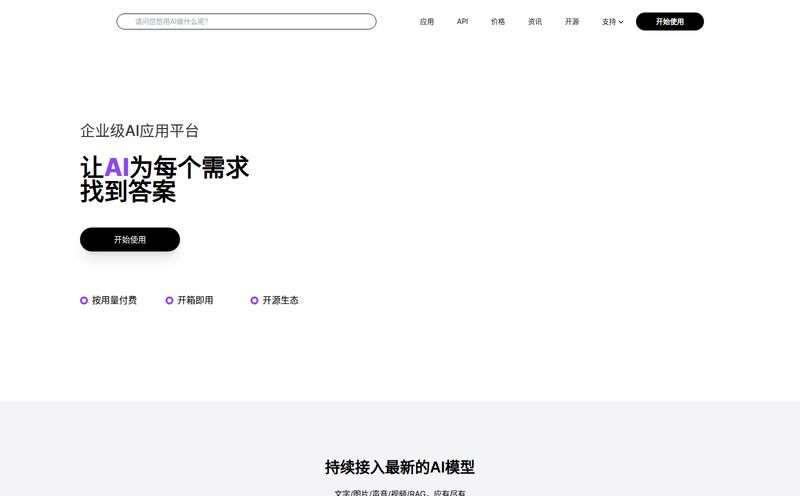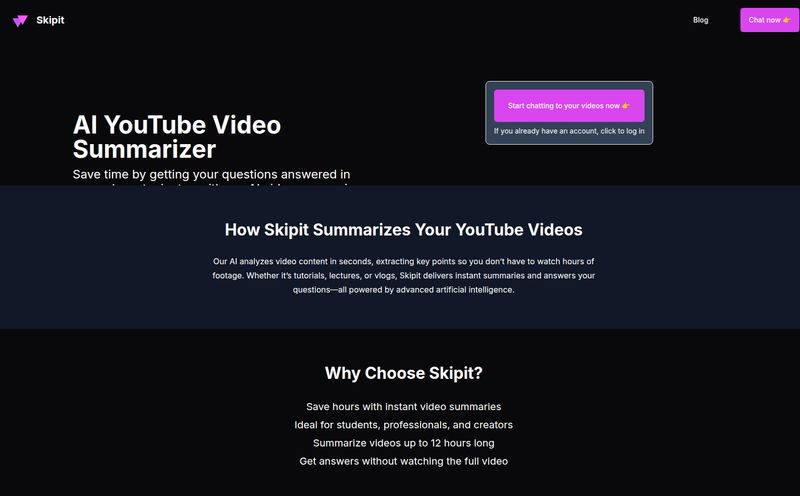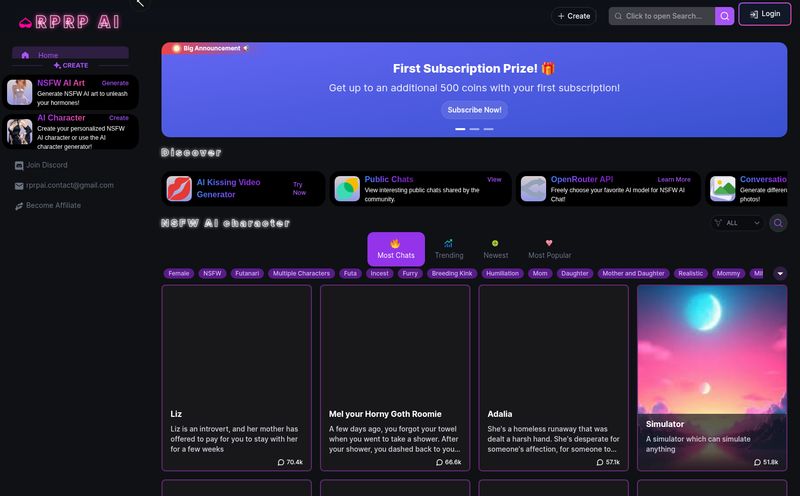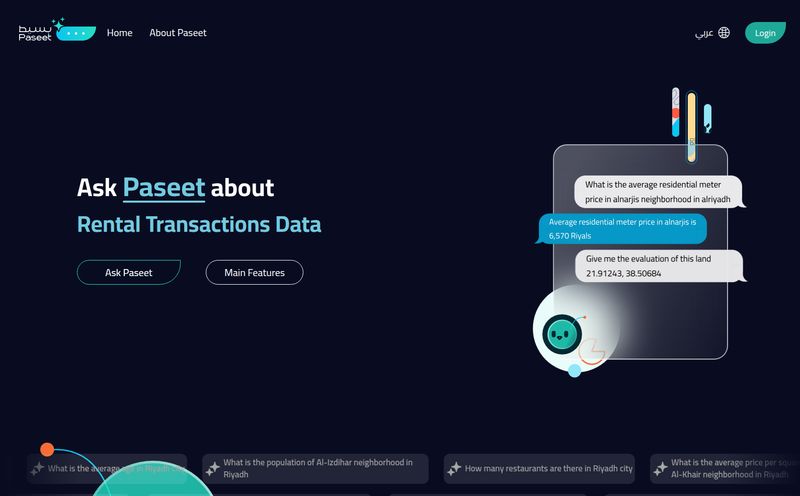I want you to picture this. It's 3 PM on a Tuesday. Your boss needs to know the month-over-month growth rate for your top three product categories in the European market. The data is all there, sitting in a spreadsheet or a database. Simple, right? But for so many of us, it’s the start of a minor headache. You either have to bother a data analyst who's already swamped, or you brace yourself to wrestle with a pivot table or, heaven forbid, a SQL query that you just know you're going to mess up.
I've been in the SEO and traffic game for years, and let me tell you, data is everything. But access to that data has always been the bottleneck. We've been promised 'self-serve analytics' for over a decade, but it usually involves learning a tool so complex it feels like you need a degree just to operate it. It's like being given the keys to a Ferrari but having no idea how to drive stick.
That's why when I stumbled upon a new tool called Datayaki, my curiosity was piqued. The tagline is simple: "Ask → Analyze." No complex interfaces, no code, just... asking questions. Could it really be that easy? Or is it another overhyped promise in the ever-growing world of AI? Let's find out.
What Exactly is Datayaki? (And Why Should You Care?)
At its heart, Datayaki is an AI-powered data analyst. Think of it less as a piece of software and more as a new team member. A very, very fast team member who never needs a coffee break. The whole idea is to bridge the gap between the questions you have and the data-driven answers you need, without the technical mumbo-jumbo in between. You don't build reports by dragging and dropping dimensions and measures; you create widgets and dashboards by typing a question in plain English. Something like, “Show me our sales by country for the last quarter.”
It’s a powerful concept. It essentially acts as a universal translator for your data. You speak human, it speaks database, and it gives you back a chart. For anyone who has felt that pang of frustration staring at a database schema, this is a pretty big deal.
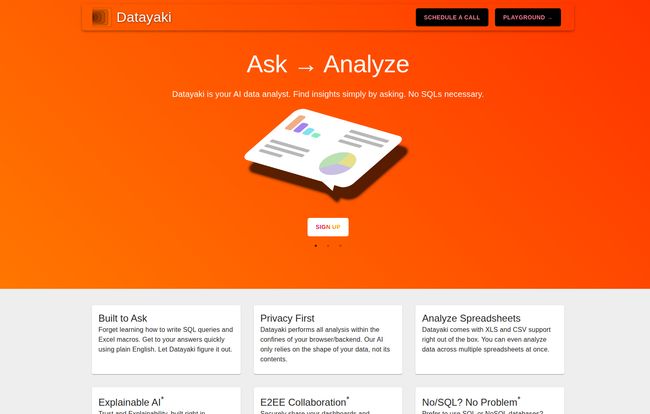
Visit Datayaki
The Core Features That Caught My Eye
Okay, the concept is cool, but execution is what matters. A few things on their site really stood out to me as being more than just marketing fluff. These are the features that address real, tangible pain points I’ve seen in countless businesses.
The Magic of "Built to Ask"
This is the main event. The shift from writing queries to asking questions is profound. It’s not just about saving time; it’s about changing who can participate in the conversation. Suddenly, the marketing manager, the product lead, or the company founder can interrogate the data directly. They have the best questions because they're closest to the business problems. This feature empowers them to find their own answers, leading to a much more agile and data-informed culture. It's about moving from data-gatekeeping to data-democratization.
No-Code, No-SQL, No Problem
I nearly applauded when I saw this. While I can write a bit of SQL, I know plenty of brilliant marketers and strategists who can't—and shouldn't have to. Datayaki connects directly to a range of popular databases like Postgres, Firebase, Supabase, and even heavy-hitters like Snowflake. The asterisk on their site says "Available soon," which is an important caveat, but it shows a clear roadmap.
And let's be honest, half the world's business data still lives in spreadsheets. The fact that Datayaki handles XLS and CSV files is a massive plus. You can just upload your weekly sales report or your latest ad campaign results and start asking questions immediately. That alone lowers the barrier to entry to almost zero.
Explainable AI and Collaboration
Here’s something that speaks to the old-school skeptic in me. With AI, there’s always the “black box” problem. How did it arrive at that answer? Datayaki claims to have “Explainable AI” built right in. If a result looks off, you can ask the tool to explain its work. You can see the logic it used, and if it's not quite right, you can guide it. This builds trust, which is absolutely critical when you're making decisions based on this information.
They also mention E2E (End-to-End) Collaboration. This is key. Data insights are useless if they stay on one person’s computer. The ability to build dashboards and share them with your team means everyone is looking at the same source of truth. No more arguing over whose spreadsheet is the right one.
Let's Talk Brass Tacks: Who is This Tool Really For?
So who would get the most out of this? While big enterprises with established BI teams might stick to their guns (for now), I see a huge opportunity for a few key groups.
- Startups & Small Teams: When you don't have the budget for a full-time data scientist, a tool like this could be revolutionary. It gives you the power of a data team for a fraction of the cost.
- Marketers: Finally, an easy way to mash up data from Google Ads, Facebook campaigns, and your own sales CRM without begging the engineering team for help.
- Product Managers: Track user adoption, feature usage, and other critical KPIs in near real-time, just by asking.
- Founders & Executives: Get a high-level, on-demand view of the business health without needing to filter through layers of reports.
Its really for anyone who has ever said, "I just wish I could ask the database a question."
The Elephant in the Room: Privacy and Pricing
Two very important questions always come up with new tools, especially AI ones: what about my data's privacy, and what's this going to cost me?
A Privacy-First Approach?
This is a big one. So many cloud tools require you to send your sensitive data to their servers. Datayaki makes a bold claim: "Datayaki performs all analysis within the confines of your local machine or VPC." If this holds true, it's a major differentiator. It means your customer lists, financial records, and proprietary data never leave your control. For industries with strict compliance needs like healthcare or finance, this could be a deal-maker.
So, How Much Does Datayaki Cost?
Ah, the million-dollar question. Or, in this case, the $150K question. On their website, there's no public pricing page. Instead, you're prompted to "Schedule a Call." This is pretty typical for B2B SaaS tools that are targeting teams rather than individuals. They want to understand your use case before giving you a price.
But they do drop a very intriguing hint: "15 mins or less could save your team $150K or more!" That's a bold claim. It's obviously framing the cost of the tool against the cost of hiring a data analyst or the opportunity cost of slow, poor decision-making. While I always prefer transparent pricing, this value-based argument is compelling.
My Honest Take: The Good and The... Unclear
Alright, let's get down to it. I'm genuinely excited by the promise of Datayaki. The idea of conversational BI is the holy grail for so many businesses. The speed and ease of use could fundamentally change how teams operate, making them faster and smarter.
However, as a seasoned professional, I have to keep a level head. The tool appears to be relatively new. The website is clean but sparse on case studies or customer testimonials beyond logos. And the biggest question mark for me is the one that plagues all AI: accuracy and nuance. Can it really understand the subtle context of a complex business question? How does it handle messy, imperfect data? The "Explainable AI" feature is a great answer to this, but its effectiveness is something that can only be tested with hands-on use.
This isn't a knock against them at all. Every great tool starts somewhere. But it's something to be aware of. You'd want to run it in parallel with your existing methods for a while to build confidence in its outputs.
Is Datayaki the Future of Business Intelligence?
Here’s what I think. We talk to our phones, we talk to our cars, we talk to our smart speakers. The idea of talking to our data is the next logical step. The era of needing to be a pseudo-developer to get basic business insights is ending. Tools like Datayaki are at the forefront of this shift.
Will it replace Tableau or Power BI overnight? No. But it's not trying to. It’s carving out a new space for the 90% of business users who need answers, not a new career in data visualization. It frees up the actual data scientists to work on the truly hard problems—predictive modeling, machine learning, deep-dive research—instead of running the same weekly sales report for the tenth time. I once had a data scientist friend tell me he spent 60% of his time on 'data janitor' tasks. Tools like this could give him that time back.
So, is Datayaki the AI analyst we've been waiting for? It just might be. It’s smart, it's intuitive, and it tackles a problem that has plagued businesses for decades. The potential is enormous.
If you're tired of being firewalled from your own data, it might be time to start a conversation with it. Datayaki seems like a pretty good place to start that chat.
Frequently Asked Questions about Datayaki
- What is Datayaki?
- Datayaki is an AI-powered data analytics platform that allows users to get insights, create widgets, and build dashboards by asking questions in plain English, without needing to write code like SQL.
- Do I need to know SQL to use Datayaki?
- No. The entire premise of Datayaki is to eliminate the need for SQL or complex coding for data analysis. You interact with your data through natural language questions.
- What kind of data can I analyze with Datayaki?
- Datayaki is designed to connect to various SQL and NoSQL databases like Postgres, Firebase, Supabase, and Snowflake. It also supports direct analysis of spreadsheet files like XLS and CSV.
- Is Datayaki secure?
- Datayaki emphasizes a "Privacy First" approach, stating that analysis is performed on the user's local machine or private cloud (VPC). This means your sensitive data does not need to be sent to their servers, which is a significant security advantage.
- How much does Datayaki cost?
- Pricing for Datayaki is not publicly listed on their website. To get pricing information, you need to schedule a call with their team to discuss your specific needs. They position their value as a significant cost-saving compared to hiring dedicated data personnel.
- Who should use Datayaki?
- It's ideal for non-technical users like marketers, product managers, founders, and business executives who need quick data insights. It's also great for startups and small to medium-sized businesses that may not have a dedicated data analytics team.
Reference and Sources
- The official Datayaki website: www.datayaki.com
- Information on Snowflake, one of the databases Datayaki aims to support: Snowflake Official Site
- A Gartner article on the trend of Natural Language Query in analytics: Gartner - The Augmented Consumer
